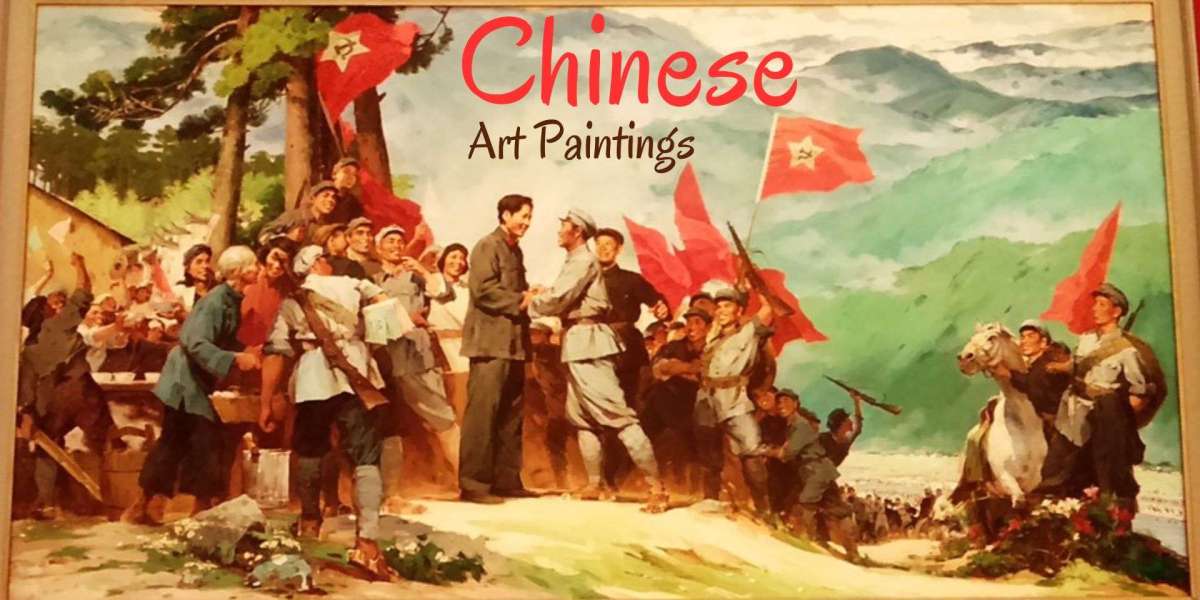Chinese art paintings are more than visual expressions—they are deep reflections of history, spirituality, and philosophy. At China Art Hub, these masterpieces are celebrated not just as decorative items but as cultural storytellers shaped by dynasties, beliefs, and individual brushstrokes. Whether you're a collector, an artist, or simply curious, exploring Chinese paintings reveals a layered world of traditional symbolism and visual poetry.
What Makes Chinese Art Paintings Unique?
Chinese art has evolved over thousands of years, influenced by Taoist, Buddhist, and Confucian thought. Each painting is a synthesis of literary insight, aesthetic balance, and technical mastery. Here’s what sets them apart:
Key Characteristics:
Brush Techniques: From freehand (xieyi) to meticulous (gongbi)
Subjects: Landscapes, flowers, birds, figures, calligraphy
Mediums: Silk, rice paper, ink, watercolor
Styles: Classical, literati, court painting, modern adaptations
Why Collect Chinese Art Paintings from China Art Hub?
China Art Hub offers a curated experience rooted in expert knowledge, artisanal authenticity, and historic value. Each piece is sourced or commissioned by seasoned curators with deep roots in Chinese visual heritage.
Benefits of Exploring China Art Hub:
Art backed by verified artist profiles
Detailed cultural context with every painting
Handpicked collections for home décor, education, or gifting
Insightful product descriptions built to inform and educate
Table: Traditional Themes in Chinese Art Paintings
| Theme | Symbolic Meaning | Popular Era |
|---|---|---|
| Landscape (山水) | Harmony with nature | Tang to Qing |
| Bamboo (竹) | Integrity and resilience | Song to Ming |
| Plum Blossom (梅) | Strength in hardship | Song Dynasty |
| Dragon (龙) | Imperial power and protection | Han to Qing |
| Crane (鹤) | Longevity and wisdom | Ming and Qing |
Most Popular Painting Styles at China Art Hub
1. Gongbi (工笔) - Detailed Brushwork
Fine lines, layered colors
Subjects: court ladies, birds, flora
Emphasis on realism
2. Xieyi (写意) - Freehand Expression
Expressive, emotional strokes
Embraces spontaneity over accuracy
Popular among literati painters
3. Shan Shui (山水) - Landscape Painting
"Mountains and Water" as a spiritual world
Often monochrome ink
Inspired by Taoist philosophy
Frequently Asked Questions (FAQs)
Q1: How can I identify authentic Chinese paintings?
A: Look for traditional materials like xuan paper or silk, distinct brushwork, and often a red seal (chop) that indicates the artist. China Art Hub ensures all works undergo verification and expert analysis.
Q2: What’s the best way to preserve a Chinese painting?
A: Keep it away from direct sunlight and humidity. Framing under UV glass or traditional scroll mounting is recommended.
Q3: Are modern Chinese paintings also available?
A: Yes, China Art Hub offers modern interpretations rooted in traditional methods—ideal for those who seek cultural depth with contemporary flair.
Q4: Can I learn Chinese painting techniques through China Art Hub?
A: Yes, many paintings include background notes on style and technique. The blog section also offers tutorials, artist interviews, and historical guides.
Tips for Beginners Looking to Explore Chinese Art
Start with iconic symbols like cranes, bamboo, or lotus
Read about the artist’s background and dynasty influence
Compare different styles (gongbi vs. xieyi) to understand technique
Use a magnifying glass to observe strokes and layering
Look for literary elements, such as poetry and inscriptions
Who Buys Chinese Art Paintings?
Interior Designers: To create culturally enriched spaces
Collectors: For investment and heritage preservation
Educators: As teaching tools in art and history
Gift Seekers: Especially during New Year, weddings, and cultural celebrations
Art Enthusiasts: Inspired by spiritual and artistic expression
Final Thought
The enduring charm of Chinese art paintings lies not just in their aesthetic appeal but in their role as timeless storytellers. At China Art Hub, these stories are carefully preserved, beautifully presented, and made accessible to those who seek to engage with the roots of Chinese tradition. Whether you're decorating, collecting, or simply learning, these artworks offer a profound connection to centuries of wisdom, beauty, and artistic legacy.







